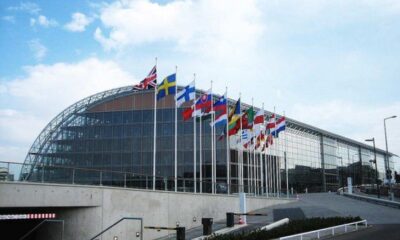

Economy
EU Opens Up €24bn Of Existing Finance To Circular Economy Businesses In Support Of EU Climate Goals
The European Commission and the European Investment Bank (EIB) announced changes to EU financial tools today to help circular economy projects and businesses secure funding and support the realisation of EU climate goals, as UN climate negotiations draw to a close in Paris. The changes build on the EU’s Circular Economy Strategy launched last week and result from EIB recommendations published today at the Financing the Circular Economy conference hosted under Luxembourg’s Presidency of the EU.
An amendment to the InnovFin Delegation Agreement signed at the conference will enable higher-risk, yet innovative sustainable business models and plans to access credit through InnovFin – an EU finance support programme under Horizon 2020, which was previously only available to innovative industrial and technology enterprises. InnovFin Advisory, a financial advice service in the EIB, will also support mid-sized businesses in making their circular economy projects investment ready in order to benefit from the Mid Cap InnovFin financial products.
Karmenu Vella, European Commissioner for Environment, Maritime Affairs and Fisheries, stated: “This Commission has made the transition to a more circular economy a priority of our work. And for small and medium businesses across Europe, we are committed to making that transition as easy as possible. Now one week after we launched our proposal, we have a real financial commitment. Today’s signing of an extension of funding coverage with the EIB will help our risk-takers make that leap to a more sustainable model of production”.
Carlos Moedas, European Commissioner for Research, Innovation and Science, said: “The circular economy has great potential to create a competitive advantage for Europe on a sustainable basis. I’m delighted to see that InnovFin, supported by Horizon 2020, has been improved to allow, from now on, support to circular economy projects.”
Werner Hoyer, President of the EIB says: “We must enable the transition towards a circular economy to unlock sustainable growth without consuming more resources, or consuming them in a smarter way – our collective future and prosperity depend on that. We at the EIB, the EU Bank, will continue to deploy technical expertise, advisory and financial firepower in support of those investment decisions which make our economies more circular, more sustainable.”
The EIB analysed the role of finance in the transition to a Circular Economy as part of an InnovFin advisory mandate for the European Commission and the Government of Luxembourg. The associated report “Assessment of access-to-finance conditions for projects supporting circular economy“ presents practical actions to finance the re-use, repair, refurbishing and recycling of existing materials and products.
Apart from the broadening of InnovFin’s eligibility criteria to attract circular economy projects, the report proposes setting up a platform for institutional and private investors ready to support projects and encourage new funding applications. Broader, non-finance related recommendations directly concern relations between manufacturers and their industry peers, as well as consumers. The report makes further recommendations on how consumers can receive more information on the expected lifetime of products or availability of spare parts, and how to assist enterprises in the creation of sound secondary markets and sharing platforms for manufactured goods or by-products.


 Environment12 months ago
Environment12 months agoAre Polymer Banknotes: an Eco-Friendly Trend or a Groundswell?

 Features11 months ago
Features11 months agoEco-Friendly Cryptocurrencies: Sustainable Investment Choices

 Features12 months ago
Features12 months agoEco-Friendly Crypto Traders Must Find the Right Exchange

 Energy11 months ago
Energy11 months agoThe Growing Role of Solar Panels in Ireland’s Energy Future




























